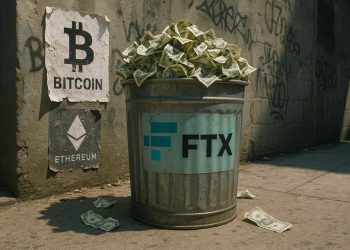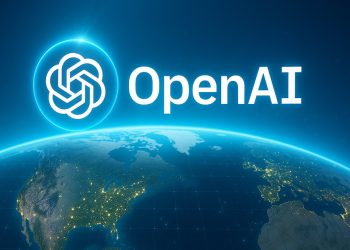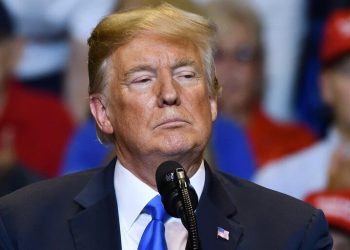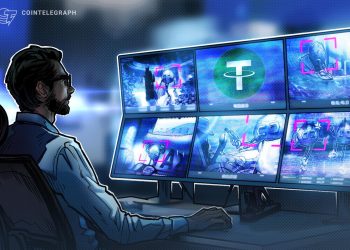
Once again, the far right is advancing across Europe, emboldened by the outcome of the 2024 presidential election and the return of Donald Trump to the White House. To turn back extremism masquerading as populism, I believe there are lessons we can learn from our battle against the extreme right in Barking in 2010, when we crushed the BNP.
The context is different. There was little social media before 2010; we hadn’t been through a pandemic; there was no major war in Europe and no serious challenge to a rules-based international order.
But there were factors at play then that are relevant today. Turnout at elections was on the decline. In Barking, east London, the 2001 general election voter turnout was 45.5%, down from 61.7% in 1997. Our research revealed that it was anger, not apathy, that kept people at home. Anger that the politicians were not listening to what mattered to voters; anger at the loss of local jobs at Ford in Dagenham; anger that successive governments had not built decent, affordable housing for local families; anger at the way immigration was transforming the local community yet politicians refused to even engage in a debate on the issue.
By 2006 this anger found a home as voters began to turn to the BNP. The BNP stood 13 candidates at the 2006 council elections and won 12 seats. Had they stood more candidates, we would have had the first BNP-controlled council in Britain.
In 2006, the Barking Labour party had lost voters’ confidence. We spent too much time looking inwards, talking to ourselves, and too little time connecting with our voters, listening and reflecting their priorities. And we did far too little to challenge some of the blatant lies that the BNP peddled and that spoke to people’s frustrations, lies of the type now amplified by social media. For instance, the myth that the Labour government was encouraging “Africans to move to Essex” became accepted orthodoxy, just as lies about Ukraine starting the war with Russia are becoming today.
Our task was to rebuild trust with our voters, and it took four years of hard and focused work to get there. Had we left it to the short campaign, we would have failed and Barking would have elected a BNP MP. Labour nationally was losing support and we were heading towards the end of the Labour government. So campaigning on national issues in Barking was not our answer.
Around the world
But we understood that all politics starts from the local. People care passionately about what is happening in their immediate environment. They are not interested in the Westminster obsessions; they care about car parking, litter, the siting of a bus stop. National issues are only important to voters if they have a local impact. Between 2006 and 2010, immigration and the lack of affordable housing were the two key national issues my constituents cared about.
We focused completely on what mattered to our voters, and I transformed the way I worked. Everything had to help me reconnect with my voters. I stopped attending endless party meetings and town hall events. I focused on connecting with as many voters as I could.
I wrote directly and often to voters, asking them to coffee mornings and street meetings. I sought their support on local campaigns, such as getting a bus route diverted to a hospital. Communicating directly with people was central to our strategy. Those that came to our coffee afternoons got a decent cup of coffee and chocolate biscuits, and we listened to their concerns; we did not preach our agenda. Listening was fundamental, and at every coffee afternoon some local issue invariably emerged. We then tried to sort out the problem. We acted on what we heard, then we communicated our action back to all the voters we had invited, even if they did not all attend. We created a virtuous circle through communicating, listening, acting and communicating that helped us rebuild trust.
We also engaged openly in the difficult issues, including immigration. Not by labelling those with concerns as racist, not by promising to turn back the clock and cut immigration, but by working to understand what was causing the hostility and trying to respond to legitimate concerns. So, for instance, we argued that with so little social housing available, it was right that a family’s connection with a local community should receive some weighting in the rationing of social housing, as well as the family’s housing need. That was contentious with the left, but we wanted to burst the toxic bubble by responding to what people believed created unfairness. And we always made the positive case for immigration and the diversity it brought, for instance by taking inclusive photos on St George’s Day.
The vindication for our approach came with the triumph of smashing the BNP, expelling all the BNP councillors and creating the circumstances that led to the disintegration of that party.
Today, social media has undoubtedly played a significant role in the rise of the populist right, enabling those with extreme political beliefs to find communities of like-minded people who will amplify the hatred and launder it through disinformation and lies.
But the current obsession with social media as a channel for political communication should not blind us to the dictum of the great US Democratic politician Tip O’Neill that “all politics are local”. I hope current politicians and communities, facing the challenge online and on the streets, can draw from our experiences in 2010. It is possible, indeed it is necessary, to channel voters’ concerns into mainstream political discourse; to stop communities being infected with hatred and lies.
#smashed #east #London #playbook #connect #connect #connect #Margaret #Hodge





















